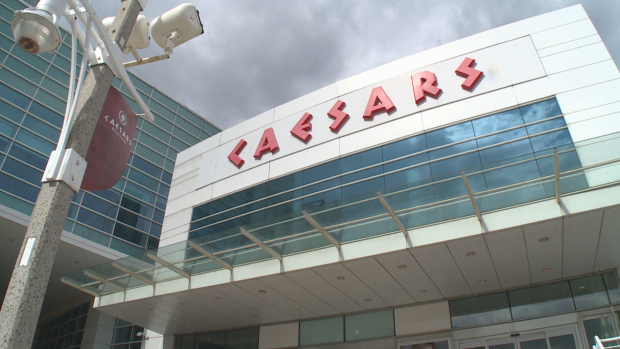A year later, Caesars Windsor remains closed — and the stakes are high

A year into the pandemic, many businesses in Windsor-Essex have reopened under a new normal.
Shops have reopened with public health restrictions in place, hairdressers are offering services and restaurants are open for indoor dining.
But Caesars Windsor — one of the region's biggest employers and landmark attractions — has had no such luck.
The property closed on March 16, 2020, just a few days before the first COVID-19 case was discovered in Windsor-Essex. Aside from briefly reopening in October and November, Caesars has been shut down ever since.
The closure is being felt beyond the casino and across Windsor, affecting other businesses and the finances of the city, in addition to thousands of employees. And it remains unknown when the casino, hotel, restaurants and concert venue will reopen.
Dave Cassidy, president of Unifor Local 444, said the union is doing what it can to support unionized workers who have lost their jobs but he wants to see the casino reopen.
"We need these restrictions to be opened up, we have a great plan in place at Caesars. And you know, it's devastating for the people."
The union represents more than 2,200 employees — most of the facility's pre-pandemic workforce of about 2,700. A limited number of employees are still working, doing jobs such as security and maintenance.

Those who were laid off from their positions still have benefits, Cassidy said, and more than 100 have accepted a newly enhanced early retirement incentive.
Some also appear to be looking at their options. June Muir, executive director of the Unemployed Help Centre, said the organization has heard from casino workers who are inquiring about what's available and exploring second-career programs.
A spokesperson for Caesars Windsor declined an interview, but in written statements over email said the last year has been incredibly challenging "for not only our business but especially for our employees and their families, who in most cases have been off almost a year now."
"We also recognize how difficult it has been for our valued guests and the entire community we live in," said Scott Jenkins, director of advertising and public relations with Caesars.
Jenkins said the impact of the extended closure on the business is "obvious," but he would not speculate on what, if any, long-term effect it could have.
He said the casino is looking to reopen, and would consider doing so when the region switches from the red "control" tier of provincial COVID-19 restrictions to the orange level.
"We have implemented health and safety protocols and are ready to welcome back our employees and guests as soon as it is financially feasible," he said.
Under the current red zone rules, establishments such as casinos and bingo halls can open with a maximum of 10 customers.
Orange zone restrictions, however, mean the casino could have a 50-person capacity. Table games such as poker would not be permitted, and alcohol couldn't be sold after 9 p.m.
Guests would also have to be screened for COVID-19 upon entry, among other restrictions.
After more than a month in the red zone, however, it's not clear when Windsor-Essex could see restrictions loosen. The most recent weekly data from the public health unit showed case rates decreased last week, but not enough to meet the orange zone criteria.
Under normal conditions, Caesars Windsor has a capacity of 10,000 people. Cassidy said given the immense size of the casino, it should be allowed to reopen under a capacity percentage, something like 25 or 30 per cent, rather than a cap on the number of guests.
"I think that's what should be done. And I invite the chief medical officer for Ontario, David Williams, down to see our plan," he said.
Direct and indirect jobs associated with casino
Rakesh Naidu, president and CEO of the Windsor-Essex Regional Chamber of Commerce, said the casino is a significant contributor to the local economy and its closure is being felt beyond the casino to those that rely on its foot traffic.

"When you have an employer of this kind, it's not just the direct jobs, which are in the thousands, but also the indirect jobs … Several sectors rely on a big employer like this for their business," he said, referencing hotels, motels and restaurants, even grocery stores and shopping plazas.
Small and medium-size businesses have been going deep into debt during the pandemic, he said, and the longer it takes for things to return to normal, the worse off they'll be.
The casino's shutdown also means a loss to the City of Windsor.
The business contributes about $11 million to the city's bottom line each year, through quarterly payments by the Ontario Lottery and Gaming Corporation based on gaming revenues. That has been "essentially eliminated" during the closure period, a spokesperson for the city said.
The loss of gaming revenue is one of the reasons the city is facing an estimated budget deficit for this year of $19 million due to the pandemic, which it intends to recoup from other levels of government.
'A great night out'
Despite the year it's been, Cassidy expressed optimism about the casino's post-pandemic future.
"It's really a great night out. It's probably the best entertainment we have in Windsor-Essex County," he said.
"They really provide great entertainment. So I don't think that's ever going to go away, but until we can get the shows and the capacity opened, that's a problem."

